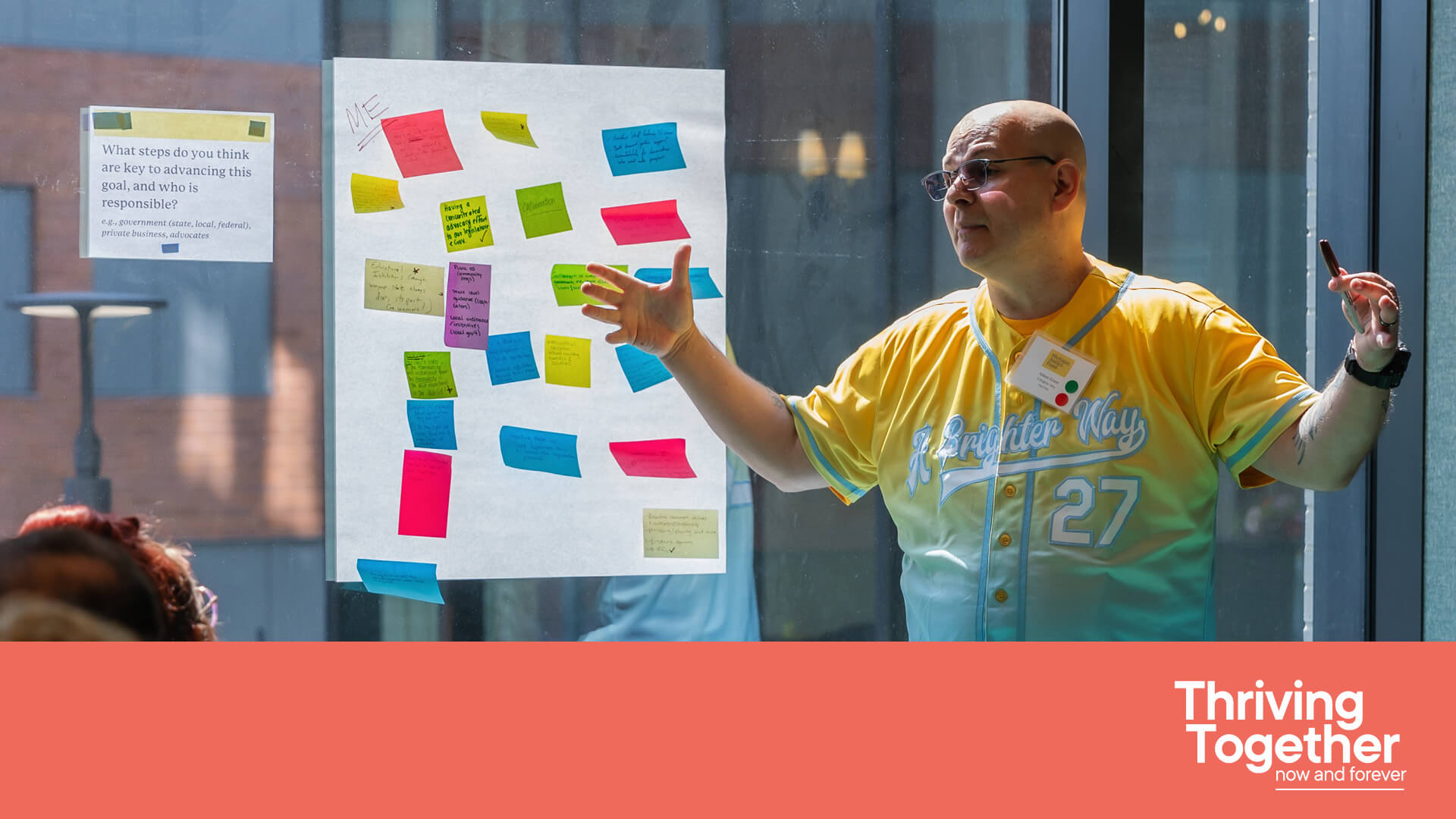
Convening to create criminal legal reform
Neon-colored sticky notes splash across the windows and hand-scrawled ideas fill nearby whiteboards in a room where Michigan criminal legal reform advocates have gathered to brainstorm.
“Everybody has a dog in the fight, so we’re all trying to build something together,” says Adam Grant, executive director of A Brighter Way, a grantee partner of the Michigan Justice Fund at the Community Foundation for Southeast Michigan. “When we have ideas, we put them out there.”
The convening is an example of how the Michigan Justice Fund creates welcoming spaces where stakeholders can share their experiences and ideas in order to build an effective criminal legal reform movement in our state.
Michigan Justice Fund gets results
Since it was established in 2020, the Michigan Justice Fund has made 221 grants, deployed nearly $19 million, and touched all 83 counties in Michigan. Last year alone, the fund made 58 grants totaling nearly $2.7 million.
The criminal legal reform movement it supports is yielding tangible, positive results. Prison population rates are down 4% since 2020, according to research the Michigan Justice Fund commissioned, and the number of individuals under Michigan Department of Corrections parole supervision fell by nearly 30% between 2020 and 2022. The declines coincided with a decrease in violent crime, suggesting reduced incarceration and safer communities can go hand-in-hand.
A key strategy the Michigan Justice Fund uses to advance this work is bringing diverse audiences together to listen, learn and engage.
“We serve as a funder, convenor and community partner, working collaboratively with a cross section of stakeholders to advance reform work across the state,” Michigan Justice Fund Director Ashley Carter says. “We consistently work to create generative spaces where advocates, other funders and relevant changemakers can gather, ideate and strategize about solutions.”
Building trust-based relationships
Returning citizens often face challenges such as a lack of access to transportation, housing, child care, and employment, but Grant says trust is also a barrier.
Grant leads the Ypsilanti-based nonprofit A Brighter Way, which helps formerly incarcerated individuals like himself return to the community and achieve purpose-filled lives, with support from peers and access to trauma-informed services.
He says the Michigan Justice Fund’s carefully curated events play a vital role in building the trust-based relationships required to advance criminal legal reform. Each convening is designed to be emotionally engaging and interactive — a breath of fresh air for participants.
“Michigan Justice Fund convenings have always had this genuinely collaborative feel to them,” he says. “It’s not just people who are doing the work. It’s people who are funding the work. It’s people who believe in the work.”
Learn more about the Michigan Justice Fund
This story originally appeared in the 2023-2024 Annual Report
